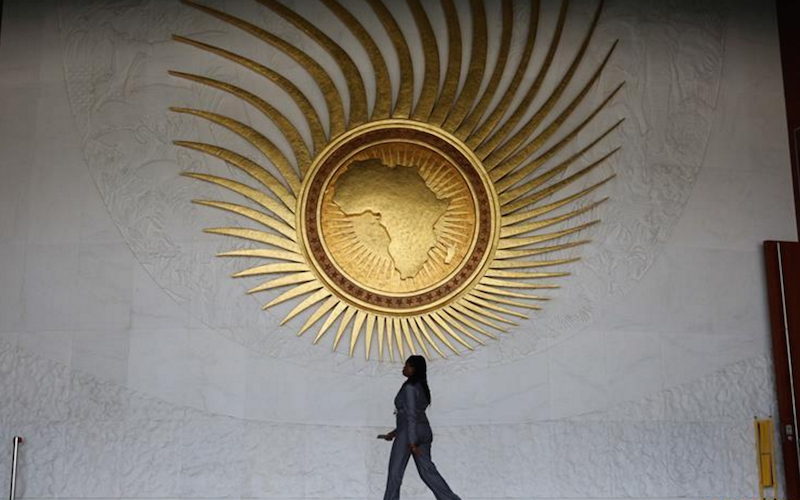
Sino-Optimism in Africa
Sino-optimism is the anticipation of transformative possibilities in Africa as a result of China’s growing interest in and increasing activities on the continent. It captures the prevailing mood in Africa today. Despite the recent economic slowdown in China and its potential effects on Sino-optimism, Beijing, for now, continues to be seen positively.
It is perhaps impossible to say when Sino-optimism was born, but its birth appears to have a dialectical connection with a discourse in the West about why China’s rise was posing a threat to the West, including in Africa. Quite dramatically, a British newspaper, Daily Mail, thus sounded the clarion call in its headline: “How China’s taking over Africa, and why the West should be VERY worried.” The frame of reference of this discourse was not whether or not China was a force for good in Africa, for Africans; it was whether or not China in Africa was a bad thing for the West.
Some were convinced that China would be posing a threat in Africa to Western interests. There was indeed a growing popularity of the so-called the China model in few places in Africa as a realistic alternative to the Western approach in contrast to what was regarded as the failed approach of neo-liberal capitalism. As Congressman Chris Smith, the former Chair of the Sub-committee on Africa in the US House of Representatives put it in 2011: “People like Bashir [of Sudan], Mugabe [of Zimbabwe] and so many others love the Chinese model of control and secret police…I am very worried about the influence of their bad human rights and bad governance model is having…”
Presumably, therefore, Sino-optimism in Africa was partly a reaction to a form of Sino-pessimism in the West in which the steadily increasing influence of China in Africa was seen as part and parcel of a process of systematically delegitimizing the prevailing neo-liberal order.
There is little doubt that China’s leaders also believe Africa’s economic modernization is in the long-term interest of China’s own rise, especially if China plays a significant part in triggering it. Indeed this is the first pillar of Sino-optimism, the subjective factor. The second pillar that anchors Sino-optimism, the objective factor, is related to the end of steady marginalization of Africa in the global political economy due mainly to China’s significant interest in the importation of primary commodities from Africa. This is Sino-capitalism at work.
Sino-optimism is also sustained by a set of beliefs about China in Africa. Some observers maintain that because, historically, China never colonized Africa, it cannot be a new colonial power. However, it can also be argued that precisely because China never colonized Africa, it may be tempted to do so, although less overtly. What would prevent China from working out a new form of colonial relationship with African states? In this sense, a country with no colonies before, in theory, may be subject to charges of harboring a neo-colonial ambition.
Others remind us that China supported Africa’s national liberation movements. Indeed, this was true in the 1960s and 1970s. China’s support for Africa when Africa was in need of support has been both solid and time-tested. The late Ethiopian Prime Minister Meles Zenawi was therefore right when he said: “Africa will never forget the historical role played by China in the struggle against colonialism.” But is the China of those decades the same as China of today?
And still others insist that China’s intentions are different from those of the West. This is a reflection of Beijing’s rhetoric about China and Africa as all-weather friends, capable of or willing to create a win-win relationship. In May 2014, Chinese Premier Li Keqiang thus asserted: “China will forever be a reliable friend and true partner of the African people.” He added, “China will not pursue a colonialist path or allow colonialism to reappear in Africa.”
Although Africa is not the only region where China’s leaders affirm that their economic diplomacy is based on a win-win formula for all sides, it is mainly Africans who seem to have genuinely embraced such rhetoric. For instance, President Jacob Zuma of South Africa said recently: “We certainly are convinced that China’s intention is different [from] that of Europe, which to date continues to intend to influence African countries for [its] own sole benefit.” The mutual feelings on both sides can be genuine, but they also overestimate the degree of freedom each has over the outcome with regard to Africa’s economic modernization.
If one looks closely at what China does rather than merely what its leaders say, it is unmistakably perpetuating the structural distortions which had been introduced to Africa by colonialism and global capitalism. The bulk of Africa’s exports to China is composed of primary commodities and the bulk of China’s exports to Africa is manufactured goods. This hierarchical division of labor is not China’s creation, of course, but we should not also continue to do the same thing and expect a different result. In other words, the logic of capital is the same irrespective of who is on the driving seat now.
“If [negative] perceptions are left unchallenged, they become a reality,” said Bishop Corletta Vaughn of Detroit, Michigan. Bishop Vaughn uttered those deceptively simple words on “CNN Tonight” with Don Lemon in December 2015 in the context of contemporary American politics. Using the same line of reasoning in reverse, I think we can say, China will have a more positive impact in Africa if its activities are driven by Sino-optimism. Actions acquire meaning through human intentions and beliefs and discourse constructs reality to some extent. By using a particular form of narrative to describe Sino-African relationship, we do not just come to understand it in a certain way, but we also create it according to that understanding.
However, the logic of capital need not also be ignored. Neither the desire of China’s leaders nor the wishes of their African counterparts to bring about economic transformation in Africa is a sufficient condition in itself for achieving that goal. It is the positive aspiration of Africa’s leaders, their adoption of the right policies and their proper implementation that can make Africa great (again). China can play a supporting role in this process.

